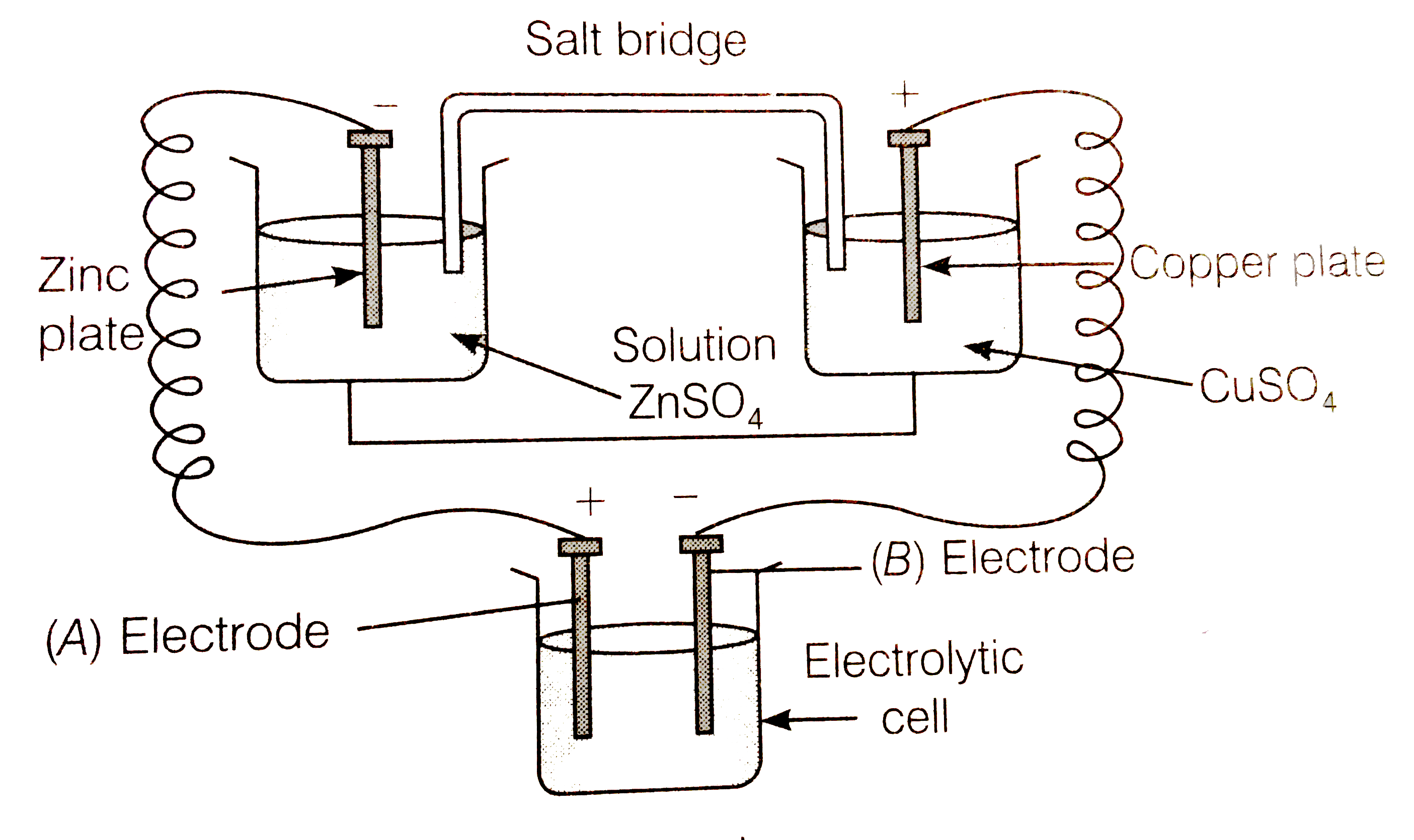Why electrochemical cell stops working after some time?
Step-by-Step Solution
1. Understanding the Electrochemical Cell: An electrochemical cell consists of two electrodes: an anode (where oxidation occurs) and a cathode (where reduction occurs). The flow of electrons from the anode to the cathode generates electrical energy.
2. Electron Flow: In a functioning electrochemical cell, electrons flow from the anode to the cathode. This flow is essential for the cell to produce electricity.
3. Depletion of Reactants: Over time, the reactants at the anode get consumed. Specifically, the material at the anode loses electrons during oxidation. Once the anode material is depleted and there are no more electrons to lose, the oxidation reaction cannot proceed.
4. Reaction Stopping: When the oxidation reaction at the anode stops, the overall electrochemical reaction ceases. As a result, the flow of electrons stops, leading to the cell no longer generating electricity.
5. Equal Electrode Potentials: Another reason for the cell stopping is related to the electrode potentials. Initially, there is a potential difference between the anode and cathode, which drives the reaction. However, as the cell operates, the potentials at both electrodes change.
6. Equilibrium of Potentials: Eventually, the potentials of the anode and cathode can become equal. When this happens, the net potential difference across the cell becomes zero. A zero potential difference means that no further reactions can occur, and the cell stops working.
7. Conclusion: Therefore, an electrochemical cell stops working after some time due to the depletion of reactants at the anode and the eventual equalization of electrode potentials, leading to no further reactions.
Topper's Solved these Questions
- ELECTROCHEMISTRYBOOK - ICSECHAPTER - ELECTROCHEMISTRYEXERCISE - EXERCISE (PART-II Descriptive Questions)(LONG ANSWER QUESTIONS)
33 Videos
- ELECTROCHEMISTRYBOOK - ICSECHAPTER - ELECTROCHEMISTRYEXERCISE - ISC EXAMINATION QUESTIONS (PART-I Objective Questions) (Fill in the blanks)
8 Videos
- ELECTROCHEMISTRYBOOK - ICSECHAPTER - ELECTROCHEMISTRYEXERCISE - EXERCISE (PART-II Descriptive Questions)
74 Videos
- DISTINCTION BETWEEN PAIRS OF COMPOUNDS BOOK - ICSECHAPTER - DISTINCTION BETWEEN PAIRS OF COMPOUNDS EXERCISE - QUESTIONS
155 Videos
- GENERAL PRINCIPLES AND PROCESSES OF ISOLATION OF ELEMENTS BOOK - ICSECHAPTER - GENERAL PRINCIPLES AND PROCESSES OF ISOLATION OF ELEMENTS EXERCISE - EXERCISE (PART-I ( OBJECTIVE QUESTIONS )) (Fill in the blanks)
60 Videos
Similar Questions
An electrochemical cell stops working after some time because_____
View SolutionElectrochemical Cells
View SolutionWhy the cell stops working after some time?
View SolutionThe electrochemical cell representing the given reaction
Ni(s)+Cu2+→Ni2++Cu(s)
View SolutionConsider the following diagram in which an electrochemical cell is coupled to an electrolytic cell. What will be the polarity of electrodes 'A' an d 'B' in the electrolytic cell?

View SolutionWhat is the sign of ΔGΘ and the values of K for an electrochemical cell for which EΘcell = 0.80volt?
View SolutionIn thistle funnel experiment, entry of water into thistle funnel stops after some time autumatically due to
View SolutionWhat is an electrochemical cell or galvanic cell?
View SolutionWhy does the electric fan continue to rotate for some time after the current is switched off ?
View SolutionDaniel cell is electrochemical cell , which of the following statement is true about it ?
View Solution
